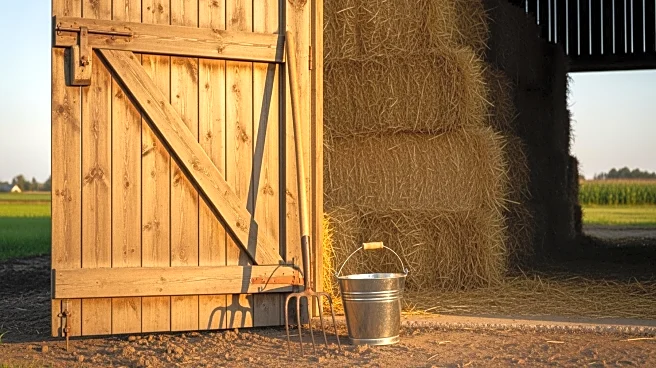Rapid Read • 7 min read
The U.S. Department of Agriculture (USDA) announced increased scrutiny for solar and wind projects on farms, following Agriculture Secretary Brooke Rollins' statement that the agency would no longer fund such projects on productive farmland. The USDA will move away from funding larger renewable energy facilities and restrict eligibility for its Rural Development Business and Industry Guaranteed Loan Program. Ground-mounted solar systems over 50 kilowatts and those lacking historical energy usage documentation will not qualify for the Rural Energy for America Program Guaranteed Loan Program. The USDA aims to ensure that renewable energy units are appropriately sized for facilities and will prohibit the use of solar panels manufactured by foreign adversaries in USDA-funded projects.
AD
The USDA's decision to heighten scrutiny on solar and wind projects reflects concerns over the displacement of prime farmland by renewable energy installations. This move aims to preserve farmland affordability and maintain agricultural production. However, it may impact farmers seeking to diversify revenue through renewable energy projects. The agency's restrictions could limit the growth of clean energy initiatives on farms, affecting the broader push for renewable energy adoption. The decision underscores the balance between supporting clean energy and protecting agricultural land, highlighting the complexities of energy policy and land use.
The USDA's policy shift raises questions about the future of renewable energy on farms and the role of government support in promoting clean energy. While the agency seeks to protect farmland, the restrictions may hinder farmers' ability to participate in the clean energy transition. The prohibition on foreign-manufactured solar panels reflects broader geopolitical concerns and the emphasis on domestic production. This development may influence the renewable energy market and the strategies of companies involved in solar and wind projects, as they navigate regulatory changes and adapt to new requirements.
AD
More Stories You Might Enjoy












